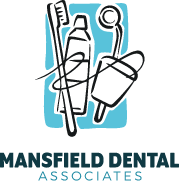It is always fun to socialize with family and friends during the holidays, but nothing can put a sour mood on the festivities faster than sour breath. Your Mansfield dentists, Drs. Jones and Harris, discuss the most common causes of halitosis and some solutions to freshen your breath this holiday season.
Common Causes of Halitosis
For most people with bad breath, the top culprit is poor oral hygiene. Bacteria naturally build up in the mouth, taking up residence on the teeth, gums, and the tongue. There, they feed on leftover food particles, and then secrete an acidic by-product. This acid is what causes both tooth decay and gum disease. It is also foul-smelling, and is the leading contributor to bad breath. Another common reason people suffer from poor breath is because of the foods they eat. The pungent smell from a number of foods such as garlic and onions comes from natural oils. When the food is digested, these oils—and the smells they produce—can actually infiltrate the bloodstream and end up in the lungs, where they can become mixed up with breath that is being exhaled. While the poor breath is only temporary, there is not much that can be done to mask the smell until the oils have passed from your body. Sometimes, bad breath is caused by an underlying medical condition. Dry mouth, a common side effect of a number of medications, can lead to bad breath, as well as compromising your overall oral health. Other conditions known to produce bad breath are stomach ulcers, sinus infections, and acid reflux disease. If you think that your halitosis is caused by a medical issue, see your primary care physician.





Recent Comments